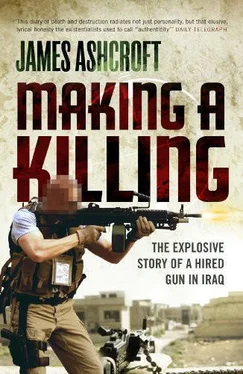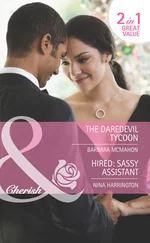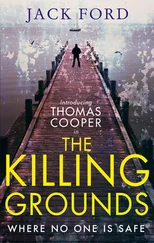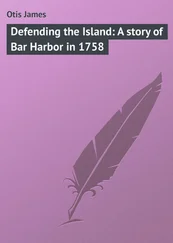As I met more and more State Department officials and CF commanders over the course of the coming year, what would disappoint me the most was the lack of willingness by senior management to pass bad news upwards. Even Paul Bremer had read the RAND report suggesting that at least 500,000 troops would be required for peacekeeping operations in Iraq but, as far as I could see, his requests for more men seemed not to get anywhere. In the same way, I heard senior officers in the CPA arguing that they needed thousands more troops but that no one was willing to put their career on the line to really push the point. They made requests and then accepted the refusals without a fuss. If Donald Rumsfeld was on Fox News saying that no more troops were needed and that he was looking forward to an imminent withdrawal of American forces from Iraq, it was a poor career move to tell him that you could not do your job without more troops.
I saw one task force go through six full colonels in twelve months. Each man arrived, took stock of the situation and reported that they would not be able to achieve target objectives without more personnel and funding. They would be ‘re-assigned’ back to the USA and we would wait to see if his replacement came up with a plan either to achieve his missions or simply retain his career. Even in May 2003, Mr Rumsfeld was still considering a US withdrawal by the end of the summer. It was not until September 2003, when President Bush got his $87 billion from Congress, that the American people realised a much longer-term commitment was needed. By then it was already too late in the minds of the educated Iraqis, who saw the CPA as ineffectual and their country sliding into chaos.
At the time of writing, in April 2006, President Bush was asked when he thought American troops would finally leave Iraq and he replied that that would be a decision for future presidents.
Later in 2004, during the ‘Iraqification’ phase of the occupation, I would meet State Department administrators who freely admitted that they were just in Iraq to ‘get their ticket punched’. They would hand back infrastructure authority to Iraqi organisations knowing that there was either a lack of funding or trained personnel, or both, and would do so in order not to rock the boat. If Washington said do something by a certain date and cut the budget, the only wise response was to say, ‘Yes sir, no problem.’ After their short stay in Baghdad, they had better things to do and none but the brave would let the truth get in the way of future career prospects.
In this climate, the CPA laboured in isolation from reality behind miles of concrete barriers in the Green Zone, working towards project goals set by Washington and the Pentagon, where, as far as we could see out in Baghdad, Bush and Rumsfeld’s aides ignored any reports that did not fit into their perceived version of events and were totally divorced from the true situation on the ground.
Les was arm wrestling across his desk with a big Iraqi lad we called Obi-Wan Kenobi.
A lot of the young guards we had employed challenged Les in these arm-wrestling duels and although Les always won, he made it look a lot harder than it was. The Iraqis are a proud, emotional people and are easily insulted. Tell a man his shooting is crap and you offend his family, his tribe, his religion.
‘Only Allah is perfect!’
It was a useful catch-all but bloody useless if you come under fire and your guards don’t know what end of the rifle they’re holding.
Les let Obi-Wan almost pin his arm to the table and then slowly levered his way to victory. Everyone cheered.
‘Next time I win, Mister Les,’ the boy said in English. He was deadly serious.
Obi-Wan Kenobi had got the nickname from his complicated name which none of us could pronounce, but he bore no resemblance to the diminutive mystic in Star Wars . He was strong, a quick learner, with sharp eyes and a vigorous Saddam Hussein moustache. Obi-Wan was one of the best shift supervisors and good at his job.
The cheering died down. Seamus was telling people to get out of his office so that he could get on with some work when the door burst open and a runner appeared breathlessly from the Ops room.
The guards on shooting practice out on the range had been shot at from the wall of the date plantation west of Aradisa Idah between our training area and the river. The land had belonged to Saddam’s family and among the trees were some spectacular mansions, now bombed flat or looted. The area had since become occupied by squatters, ali-babas and bad guys who occasionally took pot shots at the guard towers around the purification plant. They had never hit anyone because the wall was 500 metres away across ground devoid of cover. Iraqis in general tend to be poor shots, but it still scared the guards. None of them liked being posted closest to the wall on towers 2 or 3, their equivalent of being sent to the Eastern Front for a quick death.
The enemy had already shot up the towers at night twice that week◦– cue frantic calls to the villa asking for help. Our Iraqi quick reaction force, or QRF, had refused to respond as it was ‘too dangerous’. We had a policy of not responding ourselves since one day it would be used to lure the white-eyes into a trap. We had yawned, told them to lie low until first light, then rolled over and gone back to sleep. We were training a guard force to take over security of the water infrastructure and it was essential that they learn to deal with these sort of incidents without our running out every time to help them.
We arrived the following morning to replenish their ammo. Judging by the piles of cigarette butts on the floor, the enemy would have had no problem aiming at them the previous night. In typical Iraqi fashion, upon being contacted by the enemy, in blatant disregard of the training I had given them, each guard had emptied his three magazines on automatic fire into the night as quickly as he could change mags, run out of bullets in twenty seconds and then laid down and gibbered with fear. I was seriously thinking of getting the armourer to alter the AKs so that they could only fire single shot, or even issuing SKS rifles, which could not fire on automatic.
We fired the QRF commander, and replaced him with Senior Lieutenant Usama, who was built like an outside lavatory, had a handshake like a car-crushing device and spoke in an incoherent whispering growl, the result of having been either shot or stabbed in the throat at one point. He had been a paratrooper major in the former regime’s special forces, fought against the Iranians, Kurds and Americans and had been with the fedayeen until he saw the light. Usama that night had immediately left the water plant, jumped over the wall and mounted a solo patrol one kilometre into the plantation looking for bad guys to hand-shake to death. He had found nothing, but his action had been impressive. I had been tempted to give him a raise on the spot, but had told him that that would be dependent on actual bodies being dragged back.
The training at the range was a slow process and teaching the guards how to shoot had been a valuable lesson in just how dangerous people can be with firearms. In a proud, macho society like this one, not a single Iraqi man would admit in front of the others that he had never fired an AK except maybe at weddings. Sammy and I conducted dozens of dry weapons lessons with empty magazines and everyone would carry out impeccable British Army loading, firing and unloading drills. As soon as you issued live ammunition, it was like a tea party at a chimpanzee lunatic asylum◦– but with machine guns. Guards would fire at each other’s targets, shoot straight over the top of the berm, fire from the hip with eyes closed, click and fire on automatic despite Sammy and I walking down the line before the shoot and checking that each selector was set to single shot, and then turn around to clear jammed weapons while pointing at each other and at me.
Читать дальше












